What is Psoriasis?
Psoriasis is a disease where skin cells run amok. Normally the skin renews itself in about 24 days which is the time taken by skin cells to work their way from the inner most layer to the surface of the skin. However in cases of Psoriasis the cells reach the surface in just 3-4 days. This causes a huge cluster of thick skin flakes to accumulate on the surface of the skin giving rise to typical appearance in psoriatic lesions.
Psoriasis affects the extensor surfaces of the body, such as the knees, elbows, and ankles. Additionally susceptible are the scalp, hands, feet, and nails. It typically appears as scaly, red to dark patches of skin on the affected area. Even though it is a common ailment, the affected person may experience significant social discomfort.
Although most cases of psoriasis flare-up in winters, summer flare-ups are not uncommon. Summer flare ups are commonly found in people who are allergic to the sun and UV radiation.
Fill up the form
OR
Symptoms of Psoriasis
The psoriasis symptoms differ from person to person and depend on the type of psoriasis. The most common symptoms are:
- Red, raised and inflamed lesions
- Silvery white scales
- Dry skin that easily cracks and bleeds
- Small reddish pink spots
- Burning and Soreness of skin
- Pitting & discoloration of nails
- Painful swollen joints
– Psoriasis Itch is the principal and the most bothersome complaint amongst psoriasis patients. This was confirmed by a survey conducted by the National Psoriasis Foundation. Most patients who participated in the survey were of the opinion that if the itch were to be removed they would be at much ease with the disease. The itching is severe enough to cause sleep disturbances, inability to concentrate and mental depression. In addition, the trauma caused due to itching leads to new lesions. Psoriasis patients often have difficulty finding a suitable remedy for their itch. And often the kind of medicines that are required to curb the itching causes drowsiness.
Not every person will experience all of the above symptoms. Some people may have fewer symptoms depending on the type & severity of their psoriasis.
What are The various types of Psoriasis?
There are many different types of Psoriasis. Finding out which type is an important step towards treating it effectively. The type of psoriasis depends on the location, severity and appearance of the symptoms. Often people may have more than one type of psoriasis at a time.
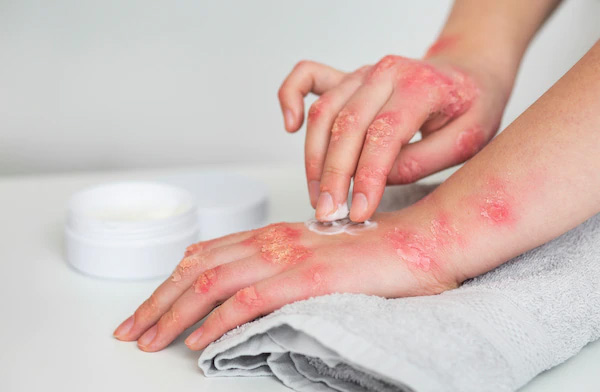
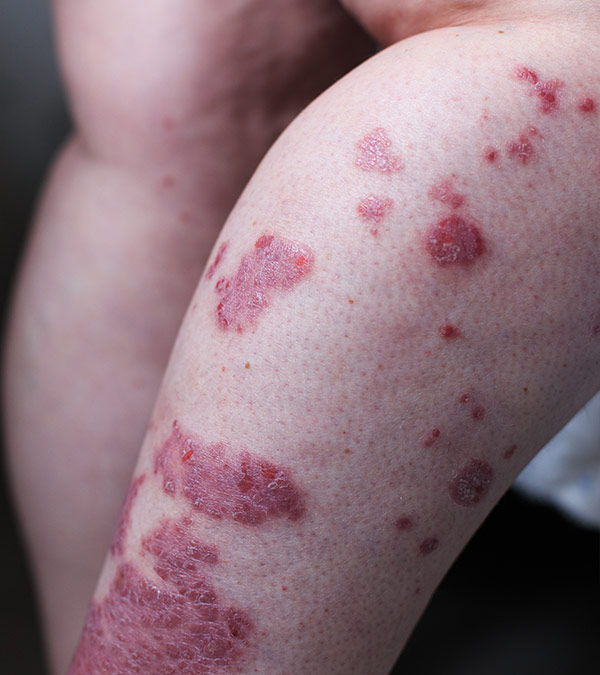
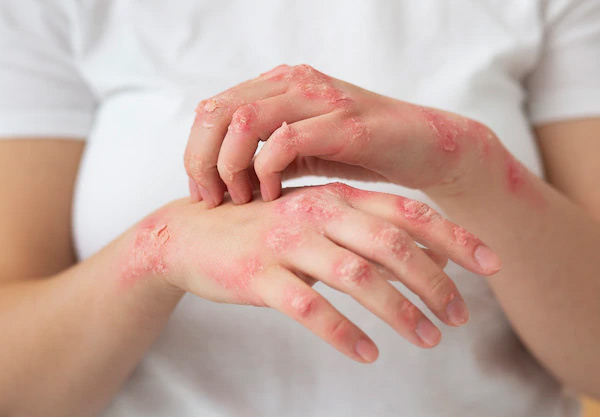
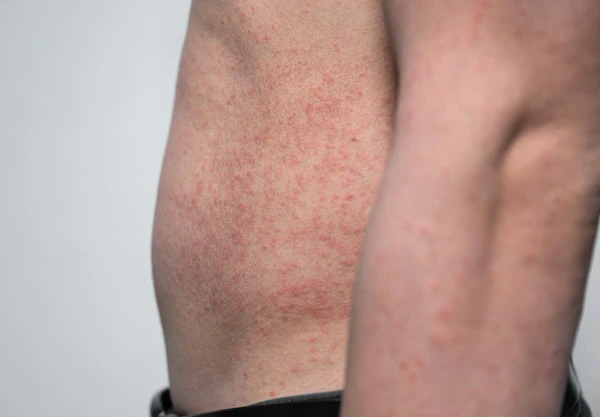
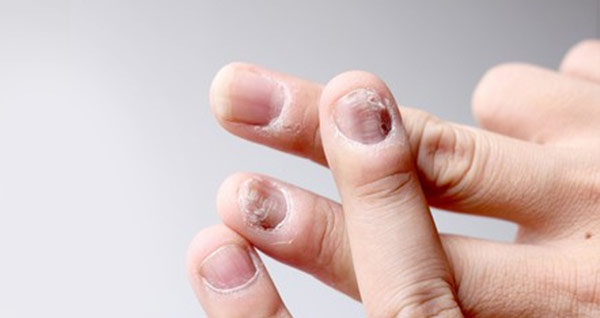
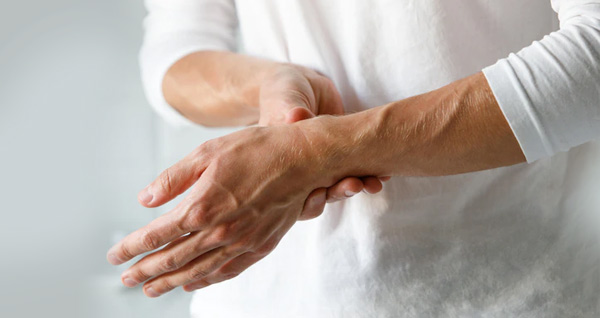
What causes Psoriasis?
The exact cause is not known but research suggests that it is caused by a problem with the immune system
Auto-immune disorder
Psoriasis is caused by a malfunctioning immune system. The malfunction has to do with white blood cells called T cells. Normally the T cells circulate throughout the body to detect and kill foreign bodies such as viruses or bacteria. However in Psoriasis, the T cells mistakenly attack healthy skin cells and trigger an overactive immune response. This leads to increased production of skin cells which build up in thick scaly patches on the skin surface. Just what causes the T cells to malfunction in people with psoriasis is not clear. Researchers have found that genetic tendency and environmental factors play a role.
Genetics
Psoriasis is genetically inherited. Having one parent with psoriasis increases the risk of getting the disease, and having two parents with psoriasis doubles the risk. However even with a family history it is not absolutely necessary that one will get Psoriasis. Thus it is often found that people with a positive family history of Psoriasis do not suffer from it whereas people with no trace of psoriasis in the family for 2-3 generations actually suffer from it.
Viral or Bacterial Infections
Recurring throat infections such as streptococcal throat infections. The link between Psoriasis and the “long lived” streptococci bacteria has opened up wider options in treating Psoriasis. A study revealed that the remnants of streptococci bacteria which were left in the body following throat infection had the potential of causing psoriasis after a gap ranging from few months to several years. This was confirmed when the doctors found that when killed streptococcal material was injected in the skin of normal persons, psoriasis developed at the site of injection. Further confirmation of this happened when psoriatic patients started responding more favorably to an anti-streptococcal line of psoriasis treatment.
Koebnerisation
Also known as isomorphic response, refers to the development of new psoriasis lesions following injury to the skin. Studies have shown that about 50% of people with psoriasis develop new lesions due to injuries caused by simple cuts, wounds, abrasions, mosquito bites or simply scratching their skin. The local trauma exposes the skin cells to activated T lymphocytes triggering new lesions. The new lesions occur within 7 to 14 days of injury to the skin.
Stress
Stress is one of the biggest psoriasis triggers. Psoriasis flares very easily when people are under stress and tends to improve when they are relaxed. In fact many people can trace the beginning of their psoriasis to a stressful period in their life. The reason is simple. When one is stressed the body reacts in a way that increases inflammation. The biggest challenge is a catch-22 situation as having psoriasis in itself can be quite stressful.
Winter, cold weather or sudden changes in weather
Winter tends to be the most challenging season for Psoriasis patients. Winter brings dry air, colder temperatures and reduced exposure to sunlight, all of which make psoriasis worse.
Smoking & Heavy alcohol consumption
Nicotine and tobacco smoke can cause oxidative stress which can in turn alter the immune system and trigger psoriasis.
People with Psoriasis should drink little or no alcohol. Several studies have shown that heavy drinkers experience more severe psoriasis symptoms. Excessive use of alcohol can cause deficiency of vitamins A and E which are crucial for healthy skin. Alcohol is a diuretic, apart from dehydrating the skin it can cause liver damage. It is known to cause flare-ups and limits the effectiveness of the ongoing psoriasis treatment. These are many reasons for patients to say NO to this dangerous cocktail.
Certain medications
Including lithium, which is prescribed for bipolar disorder; high blood pressure medications such as beta blockers; anti-malarial drugs; and iodides.
How Psoriasis Specialists can Diagnose
When you consult the best doctor for psoriasis in Bangalore for treatment, they will ask you several questions related to your health. These professionals will analyze the condition of your scalp, skin, and nails.
After this, your best psoriasis specialist also offers a small sample of skin for analysis under a microscope. It helps them determine the type of psoriasis you are suffering from.
The complications of Psoriasis
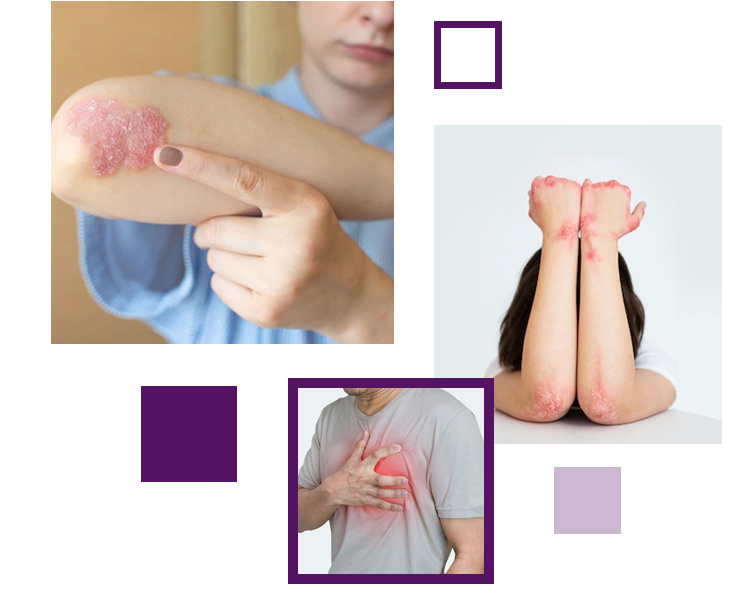
Who can we prevent Psoriasis?
Psoriasis wellness is all about prevention rather than cure. It is about adopting a certain lifestyle to suit the body needs. Following the psoriasis wellness can help the patient experience more good days than bad ones. Lifestyle changes play an important role in the prevention and management of Psoriasis. Identifying your triggers is critical for reducing or preventing symptoms of psoriasis. It may not always be possible to prevent psoriasis symptoms. But avoiding triggers can help keep your symptoms to a minimum. Here are some things you can do to prevent psoriasis flare-ups:
Lower stress levels
Sleep well, take frequent breaks to unwind. Resorting to meditation, psychotherapy and yoga may help improve coping ability.
Avoid certain medications that trigger psoriasis
Keep your doctor informed about any prescription or over-the-counter medications that you are taking.
Prevent skin injuries
Common skin injuries that trigger psoriasis include sunburns and scratches. Taking good care of your skin can help prevent these types of injuries, like using sunscreens, mosquito repellants etc.
Avoid infections
Infections are known to trigger psoriasis and thus all precautions should be taken to prevent catching infections, like maintaining adequate hygiene, washing hands often, avoiding to share food, drinks with others, limiting exposure to people who are sick.
Exposure to Sunlight
Has a healing role in treating Psoriasis. Exposure to the early morning healing sun has shown to decrease the severity of a Psoriatic outbreak and prevent relapses. Sunlight kills the activated T cells in the skin thereby slowing the growth of skin cells and reducing local inflammation. Patients need only brief exposure just few minutes in a day. Prolonged sun exposure can make symptoms worse & damage the skin. Dietary Vitamin D is also effective.
Dead Sea bath salts
Several clinical studies have documented the healing effects of bath salts from the Dead Sea in treating Psoriasis. A substantial decrease in discomfort, itching, scaling was reported with no side-effects. The healing property comes from the Dead Sea which contains four times the amount of salt found in any ocean. Apart from salts, it is loaded with a unique blend of minerals like bromide, magnesium, calcium etc which soften the skin and provide the much needed relief from the symptoms of Psoriasis.
Eat a healthy diet
Include foods rich in omega-3 fatty acids in your diet. Several studies have shown a benefit for psoriasis patients when omega-3 fatty acids were added to their psoriasis treatment. A clear and significant improvement in Psoriasis Area and Severity Index (PASI) was seen in the group that was treated with omega-3 fatty acids as compared to the control group. Oily fish like salmons and sardines are rich in omega-3 fatty acids and so is tuna fish. For vegetarians flax seeds, sunflower seeds and sesame seeds are good sources of omega-3 fatty acids. These seeds can be stored in airtight containers and sprinkled over various foods for their beneficial effects. Consumption of folate rich foods like broccoli and cabbage also is helpful. Limit the consumption of red meat, dairy products and alcohol.
Exercise
People who are looking for yet another reason to exercise, here’s a good one. It has always been know that overweight people and smokers were at higher risk of psoriasis flare-ups. However in a study, it was found that despite being overweight and other lifestyle habits people who exercised regularly seemed to be protected against psoriasis flare-ups. The study further revealed that the lower risk was due to the fact that exercise lowered inflammation in the body in general, and body-wide inflammation is a common feature of psoriasis. Further exercise also lowers stress which otherwise is a big psoriasis trigger.
Psoriasis treatment options at Dr. Health Clinic
At Dr. Health, psoriasis treatment is decided based on severity of the disease, the extent of areas involved, the type of psoriasis and the patient’s response to initial treatments. Individual therapies offer relief but are seldom strong enough to clear lesions over the long term. Therefore, we use a combination approach to provide optimal results. We call this the “1-2-3-4” approach.
Step 1 – Topical Applications for Itch Relief & Clearing Up Skin Lesions from the Surface – Psoriasis Itch is the principal and the most bothersome complaint amongst psoriatic patients. The itching is severe enough to disrupt sleep, impair concentration, and cause mental depression. In addition, the trauma caused by constant scratching results in newer lesions. Psoriasis patients are of the opinion that if the itch were to be removed, they would be at much ease with the disease. At Dr. Health, we use specially formulated topical applications that relieve itching and irritation by reducing inflammation and sloughing of dead skin. Apart from the conventional topical applications we also use aromatherapy-based skin softening agents like wheat germ, jojoba, essential oils of tagetes, tea tree and many other combinations that are highly effective against the itch.
Step 2 – Oral Medications and Immune-Modulating drugs – These medications work by modifying the response of the immune system by increasing the production of antibodies or fighter cells.
Step 3 – Sun light and UV Therapies – The exposure to UV rays in sunlight or artificial light slows down the skin cell turnover and reduces scaling and inflammation in psoriasis.
Step 4 – Psoriasis Wellness Regime – Psoriasis wellness is all about prevention rather than cure. It’s about adopting a certain lifestyle to suit the body needs. Patients who are prone to Psoriasis or are at high risk should follow wellness tips. A few minutes of sun exposure every morning is beneficial in mild to moderate Psoriasis cases. Complying with treatment, quitting smoking, addressing untreated depression, stopping alcohol abuse, reducing obesity, exercising, making diet changes, consuming folate-rich foods, adhering to a psoriasis-specific skin care regimen, and supplementing the diet with omega-3 fatty acids are just a few of the many factors that contribute to long-term Psoriasis management.
Although there is no cure for psoriasis, the symptoms of psoriasis can be managed well with a combination of proper treatment and with the following Psoriasis Wellness Regime. The effects of psoriasis treatments can also be unpredictable; what works well for one person may be ineffective for another. It is important to maintain some composure when dealing with psoriasis. When a new patch is discovered, there is no need to be concerned because treatment can remove it, and a cleared patch is not cause for celebration because a new lesion may appear there or elsewhere someday. The focus is to use the resources available to keep psoriasis from interfering with your routine, livelihood, and quality of life.
Psoriasis can be effectively treated by many medical systems, even to the point of causing remissions, but none of them can currently provide a cure. Be wary of quacks in the real world and online who promise you what you wish to believe and love to hear.
Why choose us for Psoriasis Treatment?
Side effect-free psoriasis treatment
We offer the best psoriasis treatment, which is non-invasive and non-surgical. Our treatments are side-effect free. The psoriasis treatment we provide is safe for pregnant women as well as nursing mothers.
Expert Skin Specialist
At Dr. Health Skin Clinic our psoriasis doctor is a senior specialist with 30 years of experience. We design psoriasis treatment plans according to the needs of each patient
Advanced psoriasis treatment methods
We conduct detailed skin analysis before proceeding with the psoriasis treatment, this helps us to move ahead once we’ve completely identified the individual’s requirement.
Nutritional Advice
Along with our skin consultations, we also provide nutritional consultations for our clients. As a leading psoriasis hospital in Bangalore, we utilize the latest and most advanced technology for our accurate diagnosis.
Our Patients Reviews
My dad developed psoriasis and it effected him very badly. He had bad cuts on his hands and his feet and sometimes the cuts would bleed. A friend then recommended Dr Health clinic, so my dad booked an appointment for a consultation. The doctor actually consulted him for a good 30–50 mins. My dad has had been following the psoriasis treatment consistently and his condition has improved a lot.
I’m taking treatment for psoriasis since very long time been here since 10 yrs..I am cured of the psoriasis completely ..no recurrence is there though it is winter..got back my new life. thank u
My mother is taking treatment for psoriasis problem at Dr Health HSR Layout clinic since few months. Dr Pranjal has advised few medicines and instructions to be followed. Her condition has improved a lot and there is lot of relief. we are really thankful to Dr Pranjal.
Came to the clinic with little or no expectations after visiting multiple centres for skin treatment (My skin psoriais never was resolved until I finally came to dr health) I am absolutely happy about how the doc explained the issue to me. The procedure and tablets I had been prescribed were a 100% effective.
Dr. Health acne treatment is working for me very well. I had stopped socializing due to how bad my skin had become. I know it sounds shallow but I could not lead a normal life nor socialize as my confidence was so low. I am sure most acne sufferers go through this low phase. I used to be the biggest party animal. But Dr. Health acne medicines are working for me especially the white mask. It makes my skin really smooth. My acne is clearing up. All I dream for is clear skin. To an extent I am now obsessed with my skin












